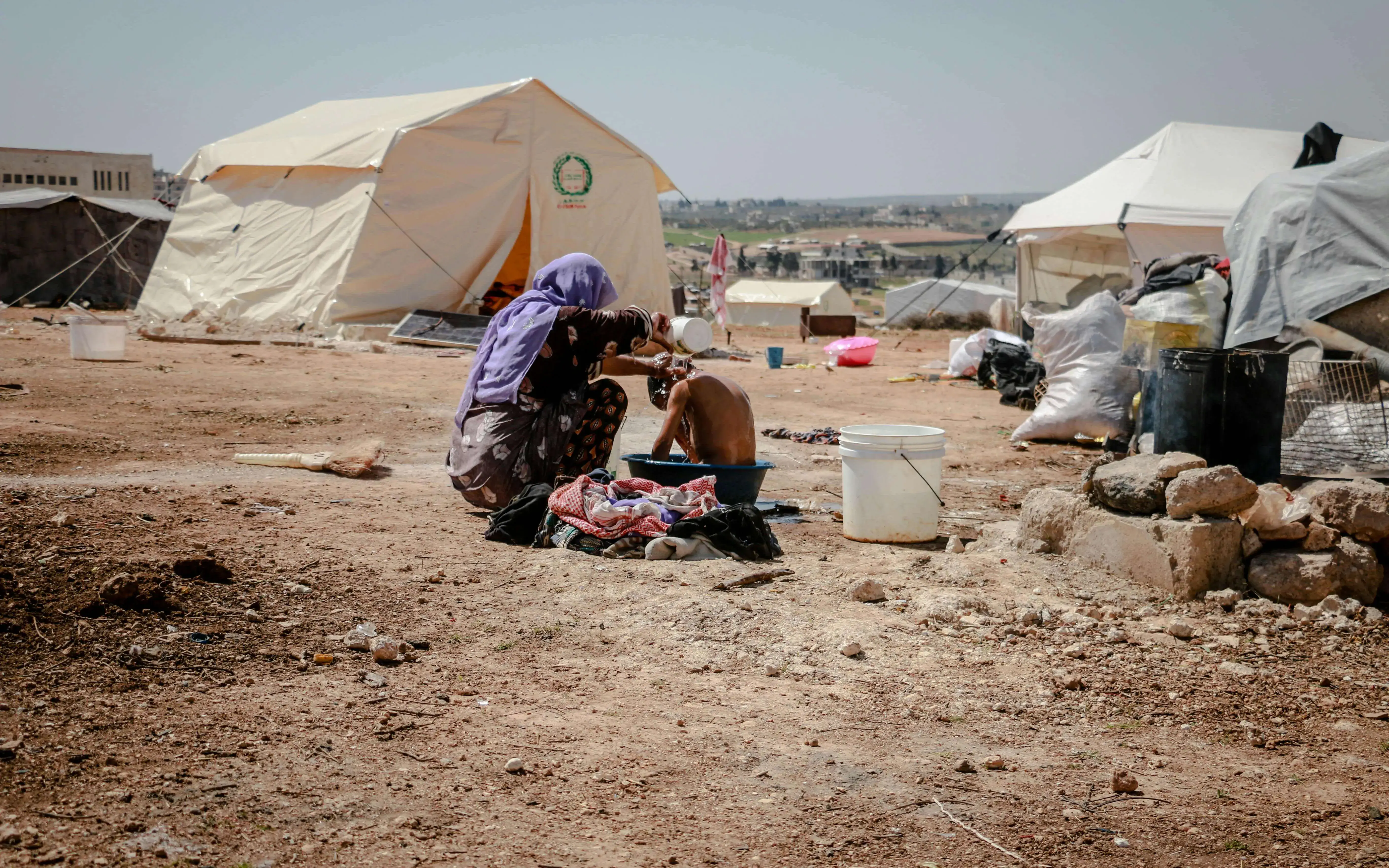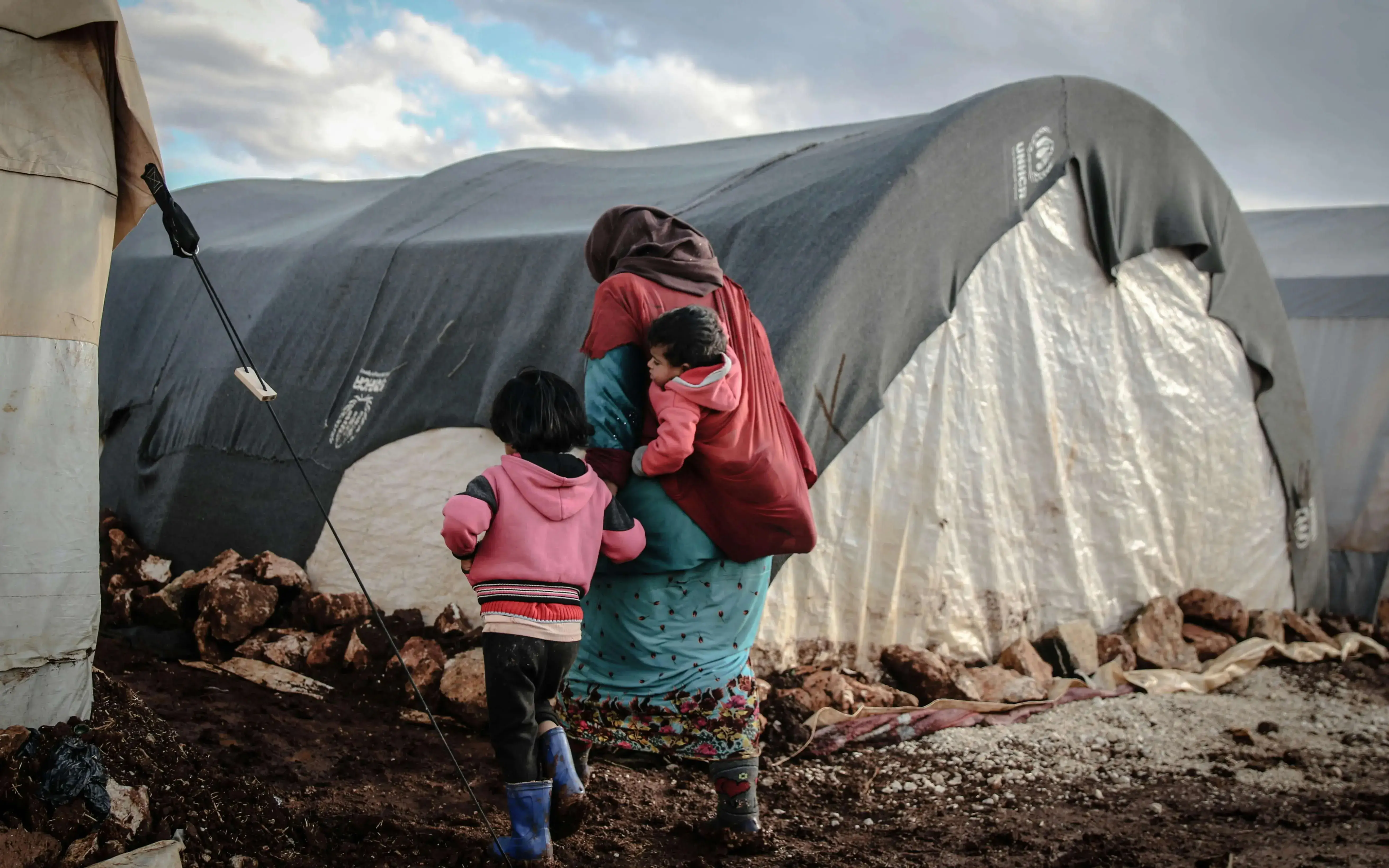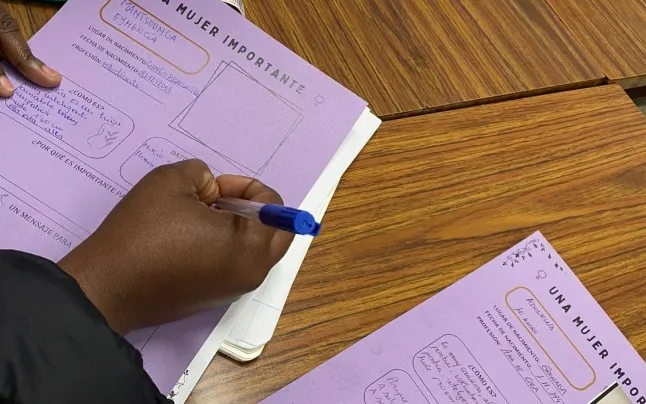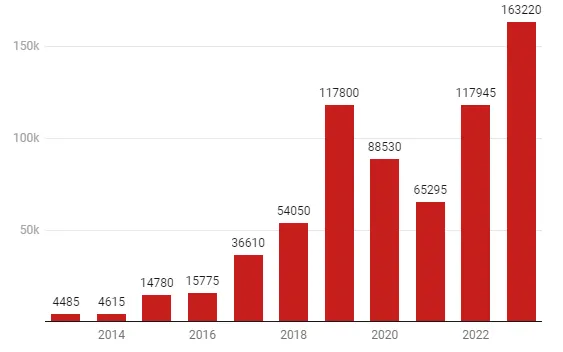
On the occasion of World Refugee Day on the 20th of June, UNHCR highlights the importance of solidarity as a driving force for change. We interviewed Paula Barrachina, Head of Communications & Spokesperson of UNHCR Spain.
What is the central message that UNHCR wants to convey this year on the occasion of World Refugee Day?
World Refugee Day is an opportunity to remember, raise awareness, and take action. This year, UNHCR's central message is "solidarity with refugees." Refugees need protection, but also opportunities to rebuild their lives with dignity. At a time when there are more than 123 million forcibly displaced people worldwide, we want to emphasize that, with support, they can actively contribute to the communities that host them. No one chooses to be a refugee, but we all have the opportunity to be part of the solution.
How has the social perception of refugees in Spain and Europe evolved in recent years?
In general, Spain maintains a high level of citizen solidarity, and we see the same in Europe. Although it is true that in Europe we have observed a growing polarization in public debate. While in crisis contexts—such as Ukraine—there has been strong mobilization, there is also an increase in discourses rejecting certain types of refugees. Combating these types of narratives, discrimination, and xenophobia is one of our most important challenges.
What role do civil society organizations play in the protection and reception of refugees?
They are fundamental. Civil society organizations, NGOs, and associations are the first point of contact and support for many refugees. They provide legal guidance, emotional and psychological support, access to rights, and create spaces for coexistence. Without their daily work, effective protection and integration would be much more difficult.
Could you highlight some examples of good practices or collaborative projects in Spain or Europe that are promoting real inclusion?
Many! In Spain, projects such as community sponsorship in the Basque Country stand out. This is an initiative of the Basque government with partners such as Caritas and the Ellacuría Foundation, and a network of committed and dedicated volunteers to make refugee inclusion a tangible reality. Another important program is "Know Your Rights," which UNHCR carries out with the law firm DLA Piper, so that refugees understand their rights in Spain, the laws, and how to complete administrative procedures, among many other things. Or integration through sports. For example, in May, UNHCR, with the support of UEFA and the RFEF, organized a match between refugees and volunteers in the Europa League Fan Zone to promote inclusion through sports.
What challenges do refugees face today in fully integrating into their new communities?
The challenges are multiple: language barriers, difficulties in recognizing qualifications or accessing the labor market, discrimination, or a lack of support networks.
In addition, prolonged legal uncertainty often complicates planning for their future and their full integration.
What initiatives are working best to promote their social, labor, and educational inclusion?
Initiatives that combine training, mentoring, and community involvement are especially effective. Language learning programs along with internships, access to adult education, or university scholarships are making a real difference around the world. It is also key to involve the private and educational sectors in these processes. Working with private companies is essential, and their contributions are crucial—they have the know-how and resources to make inclusion a reality for refugees.
What role do refugees play in building these more inclusive communities?
A leading role. They are agents of change and resilience, with talents, abilities, and dreams. When given the opportunity, they contribute to the economic, social, and cultural development of their host communities. Including their voice in decisions that affect them is essential for real and lasting inclusion.
What strategies does UNHCR use to counter disinformation or hate speech?
We work on public awareness campaigns, training for journalists, teachers, and civil servants, we work in schools and universities, and we promote the use of verified data. We also collaborate with social networks and media outlets to detect and curb disinformation, and we support real, human stories that bring refugees' experiences closer to society. But it is everyone's responsibility—we can only achieve it together.
What are UNHCR's current priorities in Spain and Europe regarding the protection and inclusion of refugees?
In Spain and Europe, we are working to improve asylum systems, guarantee access to rights, and strengthen socioeconomic inclusion. We are also seeking to expand legal and safe avenues, such as resettlement and humanitarian visas, and strengthen the response to new crises and forced displacement.
What can citizens do to get involved beyond providing one-off aid?
They can do many things! Educate themselves, raise awareness, collaborate with local organizations, volunteer, support hosting initiatives, or even promote inclusive employment. Daily and sustained solidarity has a real and lasting impact on the lives of refugees. And to support UNHCR's work directly, you can donate through www.eacnur.org – every donation received changes lives.
Finally, what message would you like to convey to those who are part of the community and volunteer network on this World Refugee Day?
Thank you - you are at the heart of the welcoming process. Your commitment, empathy, and daily work are essential for thousands of refugees to be able to start over. On this World Refugee Day, we also want to pay tribute to your work and reiterate that together, we can build more just, supportive, and inclusive societies.






Add new comment